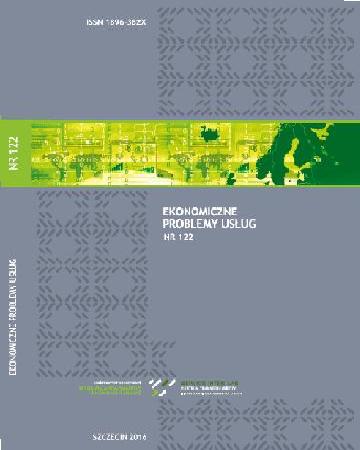
ISSN: 1896-382X
eISSN: 2353-2866
OAI
DOI: 10.18276/epu.2016.123-10



Lista wydań /
nr 123 2016
Knowledge management in strategic alliances
(Zarządzanie wiedzą w aliansach strategicznych)
| Autorzy: |
Włodzimierz
Rudny
Uniwersytet Ekonomiczny w Katowicach |
| Słowa kluczowe: | wiedza zarządzanie zdolność absorpcji alianse strategiczne |
| Data publikacji całości: | 2016 |
| Liczba stron: | 7 (101-107) |
Abstrakt
Wiedza jest kluczowym zasobem niezbędnym dla rozwoju przedsiębiorstwa. Ramy teoretyczne dla analizy systemu zarządzania wiedzą w organizacji mogą być zbudowane wokół takich pojęć, jak: cechy jednostek, cechy relacji pomiędzy jednostkami oraz właściwości samej wiedzy. Skuteczne zarządzanie wiedzą jest konsekwencją stworzenia jednostkom warunków do tworzenia, zatrzymywania i transferu wiedzy. Kapitał intelektualny i wiedza mają szczególne znaczenie w przypadku firm biotechnologicznych. Wykorzystanie tych zasobów jest uwarunkowane możliwością funkcjonowania w sieciach międzyorganizacyjnych.
Pobierz plik
Plik artykułu
Bibliografia
| 1. | Adler P. (2001), Market, hierarchy, and trust: The knowledge economy and the future of capitalism, “Organization Science”, 12 (2), 215–234. |
| 2. | Argote L., McEgilvy E., Reagans R. (2003), Managing knowledge in organizations: An integrative framework and review of emerging themes, “Management Science”, 49 (4), 571–582. |
| 3. | Baeyens K., Vanacker T. (2006), Venture capitalists’ selection process: the case of biotechnology proposals, “International Journal of Technology Management”, 34(1–2), 28–46. |
| 4. | Benkler Y. (2006), The wealth of networks: How social production transforms markets and freedom, New Haven, CT: Yale University Press. |
| 5. | Cohen W.M. and Levinthal D.A. (1990), Absorptive Capacity: A New Perspective on Learning and Innovation, “Administrative Science Quarterly”, 35 (1), 128–152. |
| 6. | Corral de Zubielqui G., Jones J., Statsenko L. (2016), Managing innovation networks for knowledge mobility and appropriability: A complexity perspective, “Entrepreneurial Research Journal”, 6 (1), 75–109. |
| 7. | Felin T., Zenger T., Tomsik J. (2009), The knowledge economy: Emerging organizational forms, missing microfoundations, and key considerations for managing human capital, “Human Resource Management”, 48 (4), 555–570. |
| 8. | Inkpen A. (2000), Learning Through Joint Ventures: A Framework of Knowledge Acquisition, “Journal of Management Studies”, 37 (7), 1019–1044. |
| 9. | Lane P.J., Koka B.R., and Pathak S. (2006), The Reification of Absorptive Capacity: A Critical Review and Rejuvenation of the Construct, “Academy of Management Review”, 31 (4), 833–863. |
| 10. | Lee R.P., Johnson J.L., and Grewal R. (2008), Understanding the Antecedents of Collateral Learning in New Product Alliances, “International Journal of Research in Marketing”, 25 (September), 192–200. |
| 11. | Malhotra A, Gosain S, El Sawy O.A. (2005), Absorptive capacity configurations in supply chains: Gearing for partner-enabled market knowledge creation, “MIS Quarterly” 29 (1), 145–187. |
| 12. | Nadler J., Thompson L., Van Boven L. (2003), Learning negotiation skills: Four models of knowledge creation and transfer, “Management Science”, 49 (4) 529–540. |
| 13. | Nahapiet J., Gratton L., and Rocha H. (2005), Knowledge and relationships: When cooperation is the norm, “ European Management Review”, 2 (2), 3–14. |
| 14. | Standing S., Standing C., Lin C. (2008), A framework for managing knowledge in strategic alliances in the biotechnology sector, “Systems Research and Behavioral Science”, 25, 783-796. |
| 15. | Uzzi B., Lancaster R. (2003), The role of relationships in interfirm knowledge transfer and learning: The case of corporate debt markets, “Management Science”, 49 (4) 383–399. |
| 16. | Zhang H., Shu C., Jiang X., Malter A. (2010), Managing knowledge for innovation: The role of cooperation, competition, and alliance nationality, “Journal of International Marketing”, 18 (4), 74–94. |